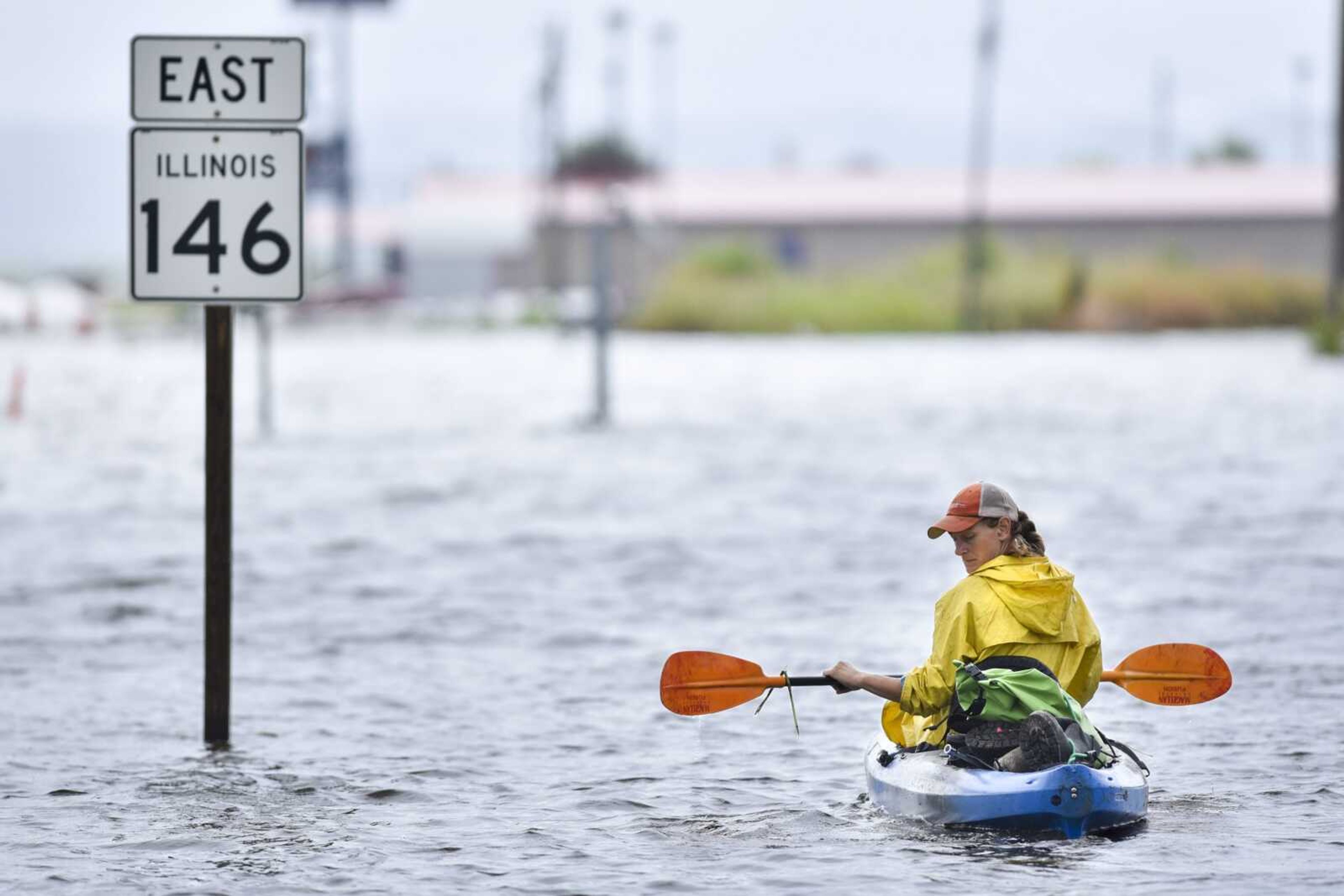Flood of 2019 sets record for duration
The Mississippi River at Cape Girardeau has set a record. Today marks the 126th consecutive day the river has exceeded flood stage, breaking the previous mark of 125 days set between June 10 and Oct. 12, 1993, according to the U.S. Army Corps of Engineers. The Corps of Engineers has tracked river levels along the Mississippi since the 1800s...
The Mississippi River at Cape Girardeau has set a record.
Today marks the 126th consecutive day the river has exceeded flood stage, breaking the previous mark of 125 days set between June 10 and Oct. 12, 1993, according to the U.S. Army Corps of Engineers. The Corps of Engineers has tracked river levels along the Mississippi since the 1800s.
“It is an unprecedented event,” said John Osterhage, chief of emergency operations at the Corps of Engineers St. Louis District.
The district includes Cape Girardeau and much of Southern Illinois where seep water from the swollen river has filtered under and through the Alexander County levee system flooding thousands of acres.
The river gauge at Cape Girardeau hovered at just above 37 feet Monday afternoon, about 5 feet above flood stage. It is expected to fall below 37 feet this afternoon.
The National Weather Service in Paducah, Kentucky, predicts the river will slowly drop to about 32 feet in another two weeks.
That’s good news for Alexander County as floodwaters are slightly lower than they were a few days ago.
“Overall, the river itself is starting to drop at a pretty good pace right now so that’s certainly helping slow down the seepage,” Osterhage said. “The lower the river gets, the less and less seepage will be coming in and the less flow we’ll have coming out of the relief wells into the protected area within the levee’s protected area.”
Osterhage said it’s difficult to say exactly when seep water will stop flowing into the area.
“There’s no hard cutoff point,” he said. “It will be more of a gradual transition so there might be a little bit of water flowing in, but it will still be at a much lower volume than it was at the height of the flood.”
Alexander County engineer Jeff Denny said lower water levels on the Mississippi River have allowed the county levee district to reopen several gates last week, which, in turn, let some of the trapped seep water escape back into the river basin. That helped lower floodwaters in the East Cape Girardeau and McClure area by an inch or two over the weekend.
“As long as the river keeps going down and we don’t get a big rain, we’ll be able to keep some of the gates along Clear Creek (near Gale) open,” Denny said. “But if we get a lot of heavy rain locally, the drainage district may have to shut some of those, which would slow the drainage process.”
Both Osterhage and Denny said they’re keeping an eye on the remnants of Tropical Depression Barry, which brought periods of rain to the area Monday with more rain predicted through Wednesday.
“All the rain from the remnants of Barry moving through the area will certainly add to the water that’s inside the levee,” Osterhage said. “I don’t have an exact figure on whether that will cause a rise or not, but it certainly doesn’t help. We’ll have to see how it plays out.”
In East Cape Girardeau, Illinois National Guard Capt. Nathaneal Love said Monday afternoon the effects of Barry “haven’t been that bad yet; a little bit of wind and steady rain.”
The National Guard has built a sandbag wall around the town and is manning pumps to siphon water coming up through the saturated ground.
“We’re working to keep the streets as clear as possible as the water comes in,” Love reported.
About 120 Guard troops have been assigned to flood control in East Cape Girardeau and are working 12-hour shifts around the clock watching for any breaches in the sandbag wall surrounding the town.
“We’ve reached the height where we’re a good distance above the top of the water so now we’re just maintaining the wall and repairing things as required,” he said.
Connect with the Southeast Missourian Newsroom:
For corrections to this story or other insights for the editor, click here. To submit a letter to the editor, click here. To learn about the Southeast Missourian’s AI Policy, click here.










